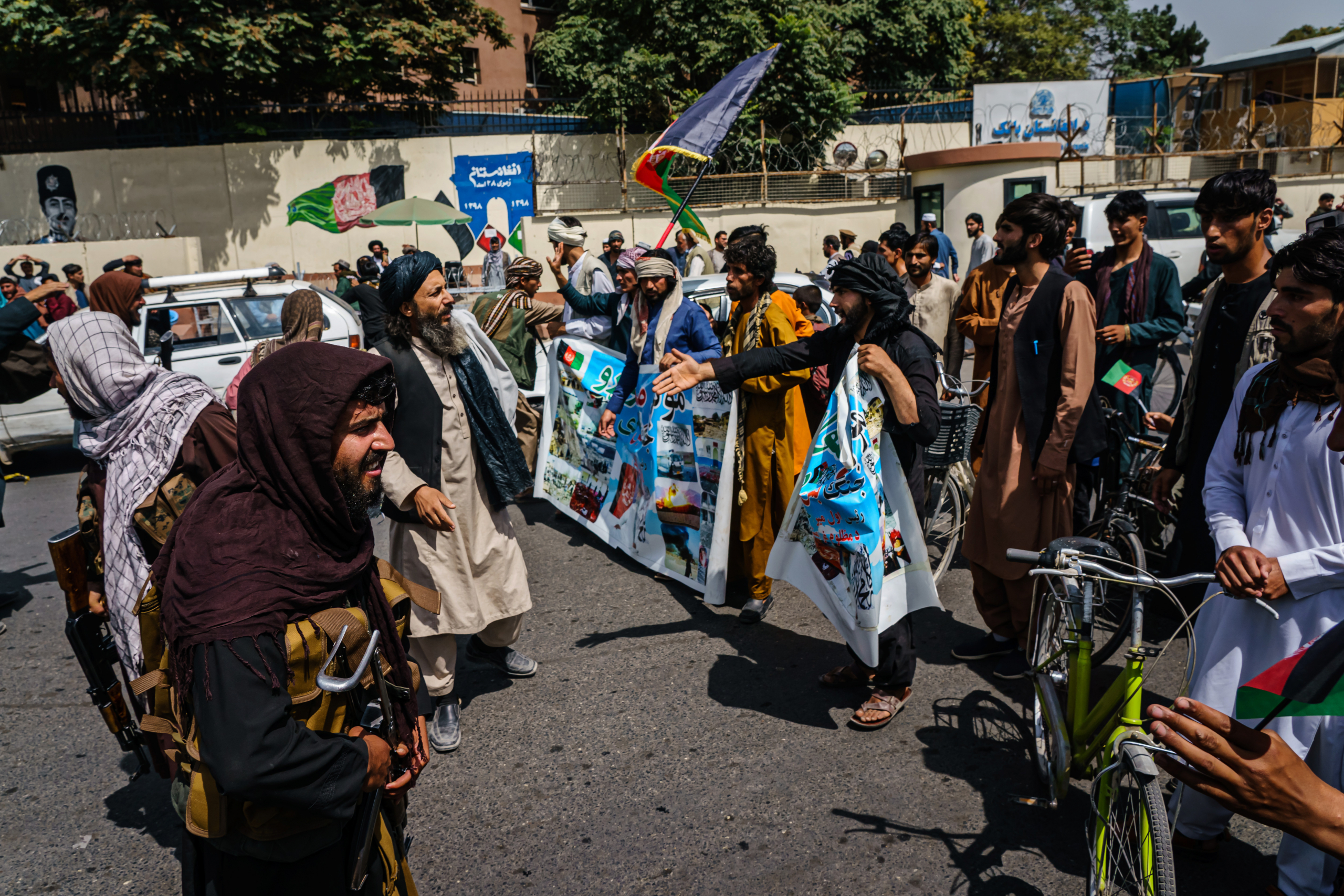Reports of gunfights at the Kabul airport highlight the precarious situation now unfolding in Afghanistan. Leaving one Afghan officer dead, U.S. and German troops exchanged fire with “unknown attackers,” suggesting that it is not just the ruling Taliban controlling the flow of traffic and people into the airport compound. There is burgeoning chatter that both Al-Qaeda and ISIS (or ISIS-K) are operating in the region; as of yet, it is unknown whether they are working in collaboration with the Taliban.
On Friday, August 20, President Biden stated that Al-Qaeda was “gone” from Afghanistan, only to be corrected two days later by Secretary of State Antony Blinken. When pressed as to whether the terrorist group was still in operation, Blinken – after three unsuccessful probings to get a straight positive or negative – admitted “yes,” but went on to clarify the president’s stance, saying:
“… what the president was referring to was its capacity to do what it did on 9/11, and that capacity has been very successfully diminished.”

(MARCUS YAM / LOS ANGELES TIMES)
The Taliban is functioning as the ruling government and Al-Qaeda is apparently reactivated, but what of ISIS?
Making the Trifecta
Completing the parade is the re-emergence of ISIS. Reports suggest that operatives of the Islamic State – an offshoot of Al-Qaeda – are making their presence known in Kabul, but questions abound on the Biden administration’s understanding of the situation. The president warned that ISIS-K (ISIS-Khorasan, the region’s branch of the terror group) is the “likely source” of threats at the Kabul airport. However, the U.S. position is that there is little or no cooperation between this group and the Taliban. Biden said that “ISIS-K is a sworn enemy of the Taliban, and they have a history of fighting one another.”
But that was when American troops had control of the country with the backup of between 200K and 300K Afghan soldiers. With this new power balance, historical comparisons suggest that Al-Qaeda, ISIS (or ISIS-K), and the Taliban will be more focused on a “common enemy” rather than theological minutiae.
Fox Nation’s Laura Logan spoke with Amrullah Saleh – who until the Taliban takeover was the country’s vice president – on Sunday. As a man uniquely situated to give an assessment of the various factional power-plays, his prognosis should be a cause for concern to the Biden administration. He warned:
“Ideologically, the difference between ISIS, al Qaeda and the Taliban is the difference between the taste of Coke and Pepsi. If you remove the labels, can you say which one is Coke and which one is Pepsi?”
A One-Stop Solution?
Responding to questions on Sunday, the president failed to reassure on the resurgence of Al-Qaeda and ISIS, but did outline precisely his administration’s plan to deal with the Taliban. He said:
“Look, the Taliban has a — the Taliban has to make a fundamental decision: Is the Taliban going to attempt to be able to unite and provide for the wellbeing of the people of Afghanistan, which no one group has ever done since before dealing — for hundreds of years. And if it does, it’s going to need everything from additional help in terms of economic assistance, trades, and a whole range of things.”
So it seems the plan to deal with a group of fighters who are fundamentally opposed to the existence of the United States of America is to send American tax dollars. And while this form of fiscal diplomacy has shown some surface-level success in the past, with China emerging as a significant player in the area, it is unlikely that the U.S. will be able to compete on a level field.
Pulitzer Prize-winning journalist and author Maureen Dowd wrote in 2001 that “Afghanistan is more than the ‘graveyard of empires.’ It’s the mother of vicious circles.” After 20 years of conflict, a deadly trifecta of forces is gathering in Kabul to stand against America and the West; if all President Biden intends is to throw cash at those who seek to harm the United States, how long will it be before another 9/11 takes place? And then the whole cycle could just begin once more.
~
Read more from Mark Angelides.



